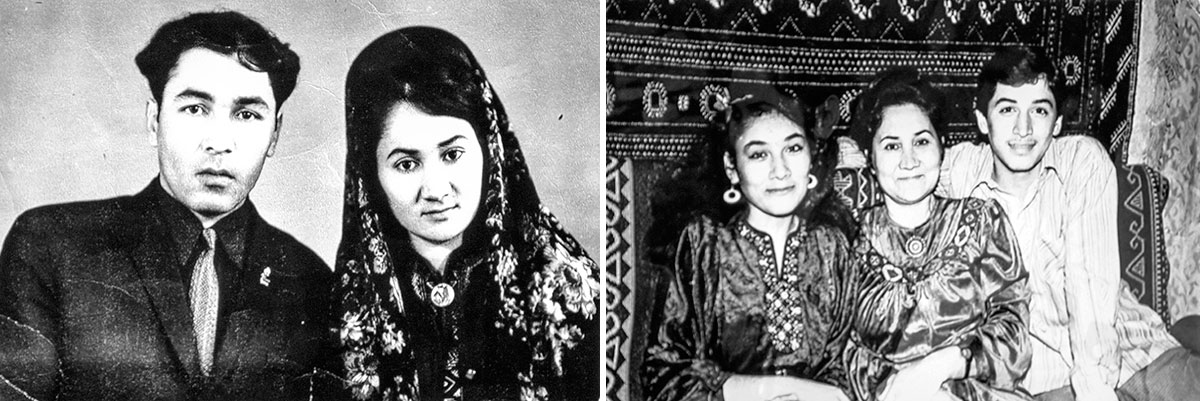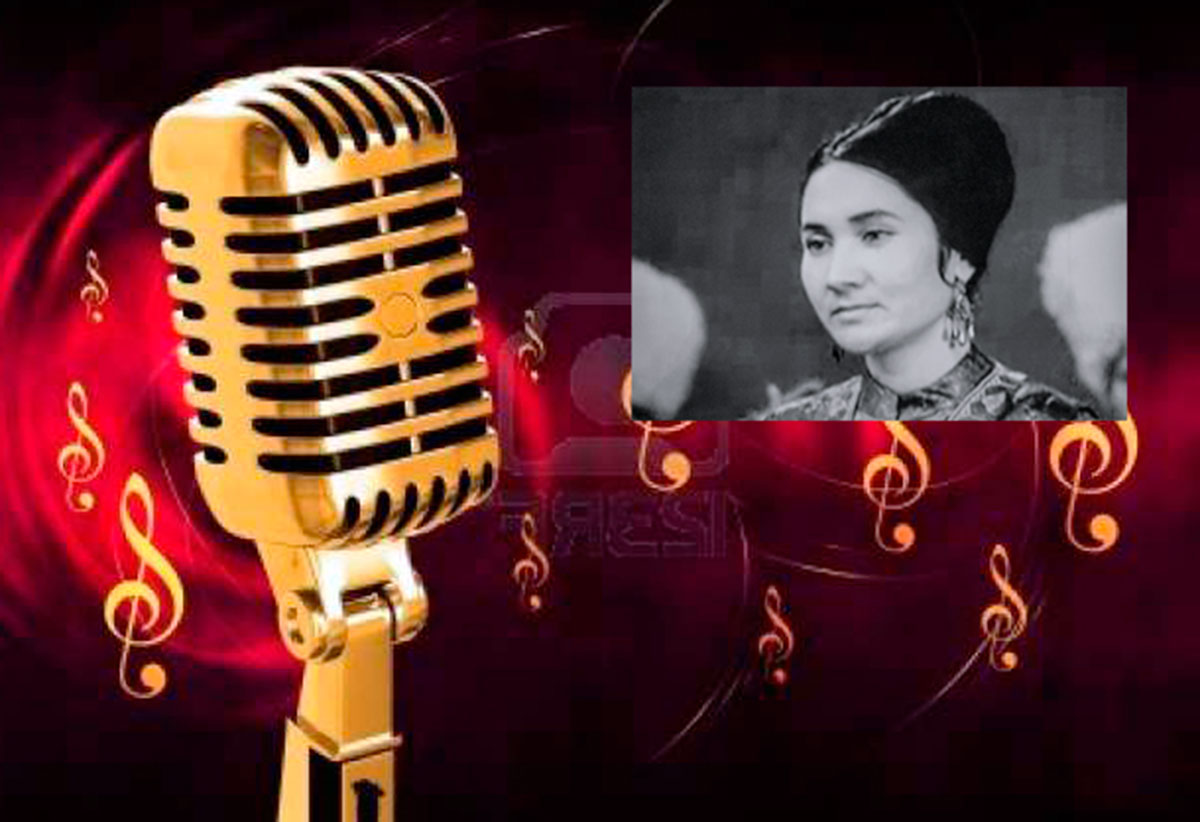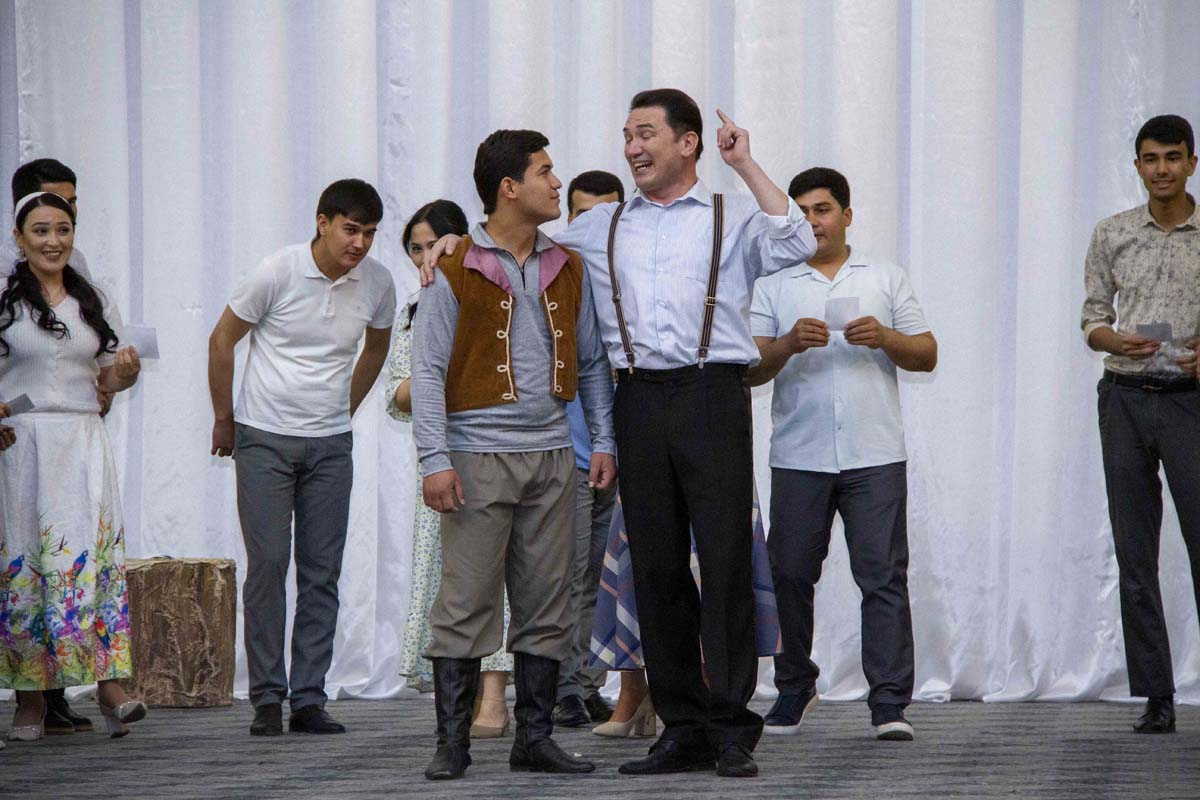The famous bakhshi Amanbibi Velmuradova is from Mary, where she grew up in a large family with many children. Her father was a very strict man, adhering to the old customs, and did not share the vocal passion of his gifted daughter. In other words, the fate of Amanbibi repeated the fate of the first female bakhshi Karkara. Father strictly forbade Amanbibi to play the dutar and sing songs for other people. But as they say, you can't keep a nightingale in a cage. And when her aunt told her father that, contrary to the ban, Amanbibi performed in the regional amateur performances, her father's belt was used.
But after graduating from school, Amanbibi showed enviable independence and entered the Turkmen State Musical College named after S. Danatar Ovezov at the vocal department. Her music teacher was gidzhakist Ata Abliev, vocals - Durnazar Khudayberenov. Everything would be fine, but on the 2nd year of study at the school there was a fire, and all the documentation burned down. While her classmates rushed to retrieve documents, Amanbibi decided to quit her studies. Her friends and teachers were in vain to persuade her not to do this. She stood her ground, and instead of a diploma received a certificate of incomplete musical education.
In principle, she caunted everything correctly. She was given so much by nature that the knowledge gained during a year and a half of study was enough to sing on the professional stage. She was indeed taken to the women's choir of the Philharmonic and with such a certificate. Once the head of the ensemble of folk instruments Sakhi Dzhepbarov told her: “Daughter! Don't let the song sit on your neck, sit on it yourself. " The words of the legendary instrumentalist sunk into her soul, but she did not immediately understand their meaning. Only after a while, she realized what Sakhi Dzhepbarov meant: he warned that she should not embarrass the audience when performing.

Three years later she was invited to the State TV and Radio Committee for the position of soloist of the ensemble of folk instruments. On the radio and television, delighting the listeners, her velvet voice sounded in the songs "Siller Galmaz", "Hemraiym", "Seyran Eyledi" and others. A dizzying life full of interesting events began for Amanbibi. She met a woman-bakhshi Nurjemal Adieva. Together with famous bakhshi and musicians she went with concerts in Russia, Mongolia, USA, Uzbekistan, Tajikistan, Kazakhstan. During the tour, she sang songs of modern bakhshi composers: Ata Ablyev, Elaman Nurymov, Akmurad Charyev.
Amanbibi's beautiful voice was noticed by the head of the Moscow Symphony Orchestra, who, having familiarized himself with her repertoire, asked to sing Russian folk songs too. And soon the songs “Oyan”, “Shemshat”, “Selbiniyaz”, “Derya”, “Sen Gelmedin”, as well as “Spinner”, “Steppe and the steppe all around,” Tajik and Azerbaijani songs, sounded in the performance of Amanbibi Velmuradova.
1973 was an unforgettable year for Amanbibi. This year, filmmaker Alty Karliev began filming a film about the first woman-bakhshi based on the script by Khudaiberdy Durdyev. Nury Khalmamedov was asked to write the music for the film. All the creators of the film "Secrets of the Mukams" were in love with the sounds of the dutar. Khudaiberdy Durdyev, once in his youth, even took lessons from Mylly Tachmuradov himself and learned to play the dutar. But one day Mylly Tachmuradov delivered his verdict: "Enough, you still won't make a musician."
Amanbibi Velmuradova recalls how Karkara's song for the film was born. At first, Khudaiberdy Durdyev played the dutar, and Nury Khalmamedov transferred the melody to notes. Then, at home, Nury Khalmamedov played the piano, and she played the dutar. While working, they stayed up late in the house of Nury Khalmamedov, and woke up their little son.

- And Ashirchik added his voice to our common cause! - joked Nury Khalmamedov.
The melody turned out, now we needed soulful words for the song. Nury Khalmamedov, leafed through many destans and finally settled on the "Khurlukga and Khemra" destan, which in its state of mind coincided with the state of the main character.
At first, it was decided to accompany the song by a symphony orchestra, but Amanbibi intervened: “This is bakhshi, it’s better if the musical accompaniment will be dutar”.
After the release of the film "Secrets of the Mukams", the popularity of Amanbibi Velmuradova skyrocketed. This singer was recognized in all corners of Turkmenistan, calling her "Bibi-bakhshi" and "Performer of the song of Karkara". There really was a lot in common between the first bakhshi woman and her: the prohibition to do what she loved, disobedience to her father, and the recognition of the singer's talent by her compatriots. Perhaps this was the last straw that made Karkara's song cult. And everywhere, at any meeting, be it agricultural workers, oil workers, carpet weavers or Amanbibi students, they asked to sing Karkara's song.
Recently at the Turkmen National Conservatory. Mai Kuliyeva, students and teachers honored Amanbibi Velmuradova on the occasion of her 75th birthday.
- “I’m very happy,” the birthday girl shared with those present that “she lived to the era where the President of the country pays great attention to the restoration of folk traditions of bakhshi and where my art is in demand.”









